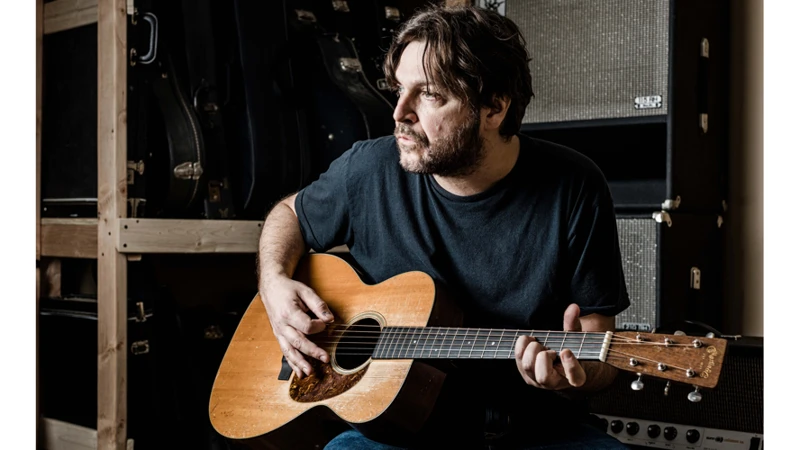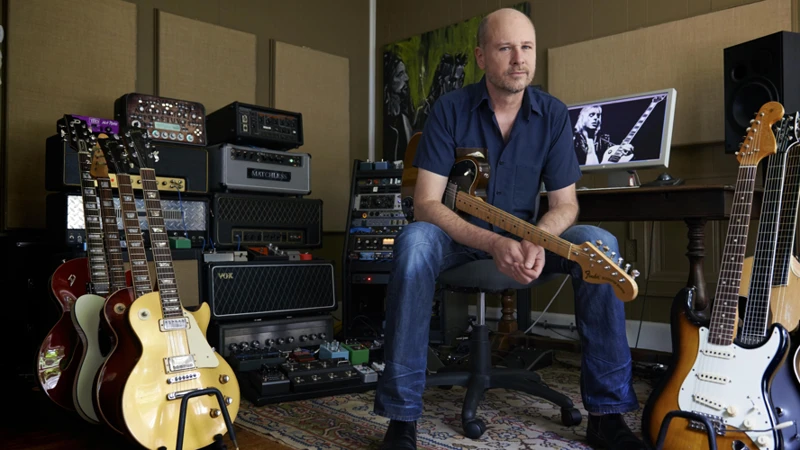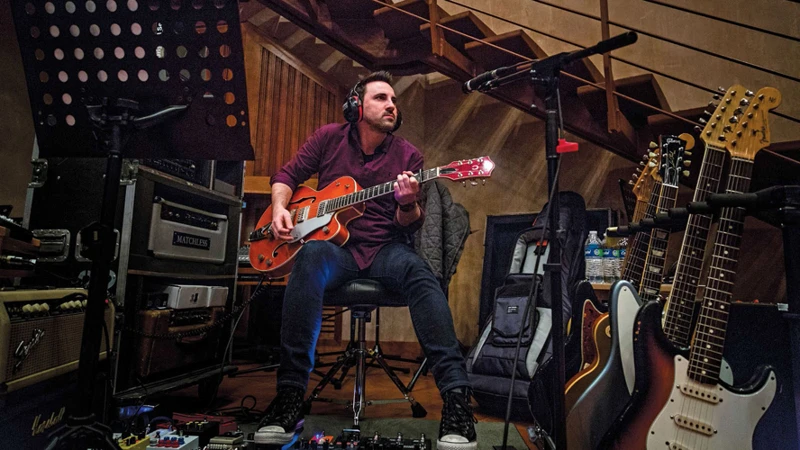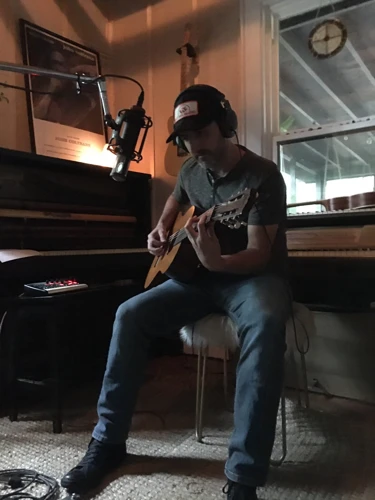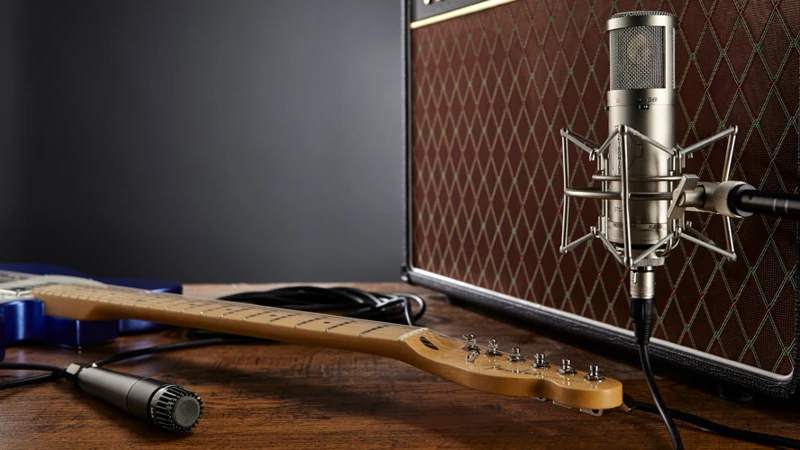Introduction
When we listen to hit country songs, we often focus on the lyrics, the melody, and the singer’s voice. However, the unsung heroes of the genre are the session guitarists whose talents add depth and character to these popular tunes. As we delve into the world of country music, we find that the role of session guitarists is as crucial as any other musician or artist. From the early days of Chet Atkins to modern-day virtuosos like Tom Bukovac and J.T. Corenflos, session guitarists have played a vital role in the creation of some of the biggest hits in country music. In this article, we’ll explore the ins and outs of session guitarists’ work and their essential contributions to the genre.
The Importance of Guitarists in Country Music
In country music, the guitar is an essential element that provides texture, rhythm, and melody. The role of guitarists, especially session guitarists, cannot be overstated. They are the ones who give life to a song by adding their own unique touch to it.
Here are some reasons why guitarists are important in country music:
| Reason | Description |
|---|---|
| Creating the Musical Foundation | The guitar often sets the tone for a song, providing the rhythm section that every other instrument and voice follows. |
| Adding Creativity and Flair | Session guitarists are known for their improvisational skills and ability to add unique flair to a song. |
| Maintaining Consistency in Live Shows | The guitar helps maintain the continuity of a live performance by providing a consistent rhythm and tone throughout the show. |
Session guitarists play a crucial role in the music industry. They collaborate with songwriters and producers to bring their vision to life. They are responsible for creating the guitar parts that make a song unique and memorable. Without them, many hit country songs would not have been possible.
If you want to know more about the techniques that session guitarists use, you can check out our article on Session Guitarists Techniques. To learn about the evolution of country session guitarists throughout the years, read our article on Country Music Session Guitarists Evolution. And for information on some famous guitarists in country music, check out our article on Famous Guitarists in Country Music.
The Session Guitarist’s Role
When you listen to your favorite country songs, have you ever thought about the intricate details that make the music whole? The guitar is a crucial instrument in country music, and it plays an important role in creating the authentic sound fans know and love. However, not all guitarists are created equal; there are session guitarists who make their living by providing their musical talents to recording artists. In this section, we will explore the important role played by session guitarists in creating hit country songs. We will examine the specific tasks they perform from the initial recording process to live performances. Let’s dive deeper into the world of session guitarists and unpack their roles in shaping the country music genre. [1]
Creating the Musical Foundation
Creating the musical foundation is the first and most important role of session guitarists in country music. They have to understand the nature of the song and create a musical framework that provides the right sound for the song. They work closely with the producers, songwriters, and other musicians to build the foundation for the song.
In order to create the foundation, session guitarists need to have a deep understanding of the different styles of country music. They have to be able to play both the traditional and modern styles of country music. They need to be able to play different types of guitar, such as acoustic, electric, and pedal steel guitar.
In the studio, session guitarists start by listening to the demo provided by the producer or songwriter. They work with the bass player and drummer to establish a solid rhythm section. They add chords and melodies to the song, building layers of sound until they have created a musical foundation that complements the vocals.
To create the musical foundation, session guitarists need to have excellent timing and a good ear for melody. They have to listen carefully to the other musicians and adjust their playing to fit into the overall sound of the song. They also need to be versatile and able to adapt to different styles of music.
Here is a table summarizing the key elements involved in creating the musical foundation:
| Key Elements | Description |
|---|---|
| Understanding the Song | Session guitarist needs to have a deep understanding of the song and musical style that will be used |
| Collaboration | Session guitarist needs to work closely with the producers, songwriters, and other musicians to establish a sound for the song |
| Playing Different Types of Guitars | Session guitarist should be proficient at playing acoustic, electric, and pedal steel guitar, depending on what is needed for the song |
| Timing and Melody | Session guitarist should be able to play the right melody and fit timing precisely into the overall sound of the song |
| Adaptability | Session guitarist should be adaptable, as different songs may require different styles or sounds. |
Session guitarists are essential in laying the musical foundation, which is fundamental in creating a successful country song. Their skills and talent in adapting to different styles and musical sounds create a dynamic and versatile foundation that provides a unique background for the entire song. Partnering up with a guitar duo like the ones described in this article can also elevate the foundation and create an interesting dimension to the song.
Adding Creativity and Flair
Session guitarists are not only responsible for creating the musical foundation of hit country songs, but they also add creativity and flair to the music. These talented musicians bring their own unique style and personality to each project they work on, helping to give the song its own identity and stand out from the crowd.
One way session guitarists add creativity and flair to songs is through the use of improvisation. They are often given room to add their own solos and fills, which can take the song in new and exciting directions. This is where their expertise and musical skill shine, as they seamlessly incorporate unexpected chord progressions, melodies, and rhythms into the song.
Another technique that session guitarists use to add creativity and flair is through the use of effects pedals. These tools allow guitarists to experiment with new sounds and textures, from crunchy distortion to dreamy reverb. By layering multiple effects on top of each other, session guitarists can create complex and dynamic sounds that add depth and character to the song.
Table: Techniques session guitarists use to add creativity and flair
| Technique | Description |
| Improvisation | Session guitarists add their own solos and fills, incorporating unexpected chord progressions, melodies, and rhythms to the song. |
| Effects Pedals | Guitarists experiment with new sounds and textures using tools like distortion, reverb, delay, and more, to add depth and character to the song. |
In addition to improvisation and effects pedals, session guitarists also work closely with producers and songwriters to develop arrangements that enhance the song’s impact. This includes choosing the right instrumentation to create a specific mood or vibe, as well as finding the perfect arrangement of chords that complements the melody and lyrics.
Through their creativity and musical skill, session guitarists are an essential part of the country music industry. They help create hit songs that listeners love, and their contributions serve as a testament to their talent and dedication to their craft.
Maintaining Consistency in Live Shows
Maintaining consistency in live shows is crucial for session guitarists when playing with country music artists. Consistency ensures that the music sounds the same to the audience as it does on the recorded track. This helps to create a polished and professional performance.
One way session guitarists ensure consistency is by sticking to the script of the live show. This means playing the same guitar parts and using the same equipment as was used during the studio recording. Session guitarists must make sure to maintain the original tempo and key of the song to ensure that it sounds the same as the original recording.
Another way to maintain consistency is through rehearsals. Before a live show, session guitarists will typically spend several days or even weeks practicing with the artist to make sure that they are comfortable with each other’s playing style and the overall feel of the music. This helps to ensure that the performance is consistent and polished.
Session guitarists also need to be adaptable during live shows since artists may change small aspects of the performance, such as the tempo, on the fly. In these situations, the session guitarist must be able to quickly adapt to the changes to ensure that the performance remains consistent with the original recording.
Maintaining consistency in live shows can be a challenging but rewarding experience for session guitarists. It requires a great deal of practice and attention to detail, but when done successfully, it helps to create a polished and professional performance that audiences will enjoy.
| Techniques for Maintaining Consistency in Live Shows |
|---|
| Stick to the script of the live show |
| Maintain the original tempo and key |
| Rehearse extensively with the artist |
| Stay adaptable during the live performance |
The Evolution of Country Session Guitarists
As the country music genre evolved over time, so did the role of session guitarists responsible for bringing hit songs to life. From the early days of Chet Atkins to the modern-day expertise of Tom Bukovac and J.T. Corenflos, the history of country session guitarists is long and intriguing. Let’s dive deeper into the evolution of these talented musicians who shaped the country music scene and continue to do so today.
The Early Days: Chet Atkins
During the early days of country music, one name stood out as a trailblazer in the world of session guitarists: Chet Atkins. His fingerstyle technique and unique use of chord progressions set him apart from his peers and helped to define the Nashville sound.
Atkins began his career as a member of the Carter Sisters and Mother Maybelle, playing acoustic guitar and learning the basics of country music from his elders. However, it wasn’t until he switched to electric guitar and began working as a session musician that he truly found his calling.
As a session guitarist, Atkins quickly made a name for himself by recording with artists such as Hank Williams and Elvis Presley. He was known for his exceptional ability to improvise and come up with unique guitar parts on the fly, which often ended up becoming the signature sound of the final song.
Atkins also played a significant role in shaping the Nashville sound. He introduced complex chord progressions and jazz-influenced harmonies into country music, effectively elevating it to a new level of sophistication. He was a mentor to many up-and-coming guitarists, including Jerry Reed, and his influence can still be heard in the music of modern country artists.
Chet Atkins was a pioneer in the world of session guitarists, and his contributions to country music are immeasurable. He paved the way for future generations of guitarists and helped to define a genre that continues to captivate audiences to this day.
The 70s and 80s: Dann Huff and Brent Mason
During the 70s and 80s, the role of session guitarists in country music underwent significant changes. Two of the most prominent figures during this era were Dann Huff and Brent Mason, both of whom had major impacts on the genre with their innovative playing styles and techniques.
| Guitarist | Contribution |
|---|---|
| Dann Huff | With his undeniable guitar talent, Dann Huff quickly established himself as one of the most sought-after session guitarists of the 80s. He worked with numerous artists, including Reba McEntire, Dolly Parton, and Kenny Rogers, and his versatile playing style contributed to a wide variety of hit songs. One of the most notable examples of his work is the memorable guitar hook in McEntire’s “Whoever’s in New England.” |
| Brent Mason | Brent Mason is a true guitar virtuoso who was heavily influenced by revered Nashville guitarist Chet Atkins. His lightning-fast speed, complex fingerpicking, and mastery of various genres including jazz and rock helped him earn the respect of both fellow musicians and audiences alike. He played on countless chart-topping country hits, including Garth Brooks’ “The Thunder Rolls” and Alan Jackson’s “Chattahoochee.” |
Together, Huff and Mason ushered in a new era of country guitar playing, infusing the genre with fresh ideas and new techniques. They helped push the boundaries of what was previously considered traditional country music, and their contributions continue to impact the genre to this day.
The Modern Session Guitarist: Tom Bukovac and J.T. Corenflos
When it comes to modern session guitarists in country music, Tom Bukovac and J.T. Corenflos are two names that always come up. Both have an impressive resume of contributing to hit country songs.
| Guitarist | Achievements |
|---|---|
| Tom Bukovac |
|
| J.T. Corenflos |
|
What makes Bukovac and Corenflos stand out is their ability to bring a unique sound and style to each song they play on. They understand the importance of creating a musical foundation while also adding their own creativity and flair to the mix.
In addition to their superb guitar skills, both Bukovac and Corenflos are highly respected for their professionalism and ability to work well with producers, songwriters, and artists. They take direction well and are always willing to try new ideas to make a song the best it can be.
The contributions of modern session guitarists such as Bukovac and Corenflos are integral to creating hit country songs that resonate with audiences. Their skills, experience, and ability to collaborate make them highly sought after in the industry.
Famous Session Guitarists Who Contributed to Hit Country Songs
Some of the greatest hit country songs of all time would not have been possible without the contributions of session guitarists. These unsung heroes of the music industry are incredibly talented musicians who add their unique styles and skills to create the perfect sound for any given track. Here are some of the most notable session guitarists who have left their mark on the country music scene.
1. Brent Mason: Known for his lightning-fast fingers and impeccable technique, Brent Mason has been a go-to session guitarist for many country music artists. He has contributed to some of the biggest hits in the genre, including Alan Jackson’s “Chattahoochee” and George Strait’s “Blue Clear Sky.”
2. Dann Huff: With a career spanning several decades, Dann Huff has played guitar on countless country hits over the years. He has worked with artists such as Faith Hill, Keith Urban, and Rascal Flatts, helping to shape the sound of country music in the 80s and 90s.
3. Chet Atkins: Considered by many to be the father of modern country music, Chet Atkins was an incredibly skilled session guitarist who helped shape the genre in its early years. He worked with a wide range of artists, including Elvis Presley, Dolly Parton, and the Everly Brothers, and even won 14 Grammy awards for his work.
4. Tom Bukovac: With credits on hit songs by artists such as Luke Bryan and Chris Stapleton, Tom Bukovac has become one of the most in-demand session guitarists in Nashville. His versatile playing style and ability to adapt to different genres have made him a fixture in the Nashville music scene.
5. J.T. Corenflos: J.T. Corenflos has been a session guitarist in Nashville since the 1990s, and has played on numerous hit songs by artists such as Kenny Chesney and Toby Keith. He is known for his fast and precise playing style, as well as his ability to add a touch of rock and roll to traditional country sounds.
These are just a few examples of the many talented session guitarists who have contributed to hit country songs over the years. Without their skills and creativity, many of the most beloved country songs of all time would not exist.
Collaboration with Producers and Songwriters
Session guitarists are an integral part of the country music production process, and their role often involves collaborating with songwriters and producers. Working closely with producers and songwriters is essential to the success of a hit country song. The producers and songwriters are responsible for the overall direction and vision of the song, and the session guitarist must be able to bring their creative energy and technical expertise to the table.
During the collaboration process, producers and songwriters may have a specific framework in mind for the song, or they may have a rough demo that needs to be developed further. The session guitarist’s job is to listen to the demo and to work alongside the producer and songwriter to enhance the song’s musical elements. This includes choosing the right guitar tone and sound and making suggestions for guitar riffs and solos that will complement the song’s sound.
Working with producers and songwriters can be a challenge for session guitarists. This is because they often have to navigate conflicting opinions and visions for the song. At times, the session guitarist may have to make a judgment call on what will sound best for the song. However, it is important for the session guitarist to remember that their ultimate goal is to elevate the song, while still incorporating their own unique style and flair.
The collaboration process between session guitarists, producers, and songwriters does not always happen in person. In some cases, the session guitarist may be sent a demo to work on remotely. This requires clear communication and attention to detail to ensure that the session guitarist’s work fits seamlessly into the song.
Collaborating with producers and songwriters can be particularly challenging when working under tight deadlines. In these situations, the session guitarist must be able to quickly understand the producer and songwriter’s vision for the song and make creative decisions on the spot. This requires a great deal of experience and skill.
Session guitarists play an important role in creating hit country songs through their collaboration with producers and songwriters. This collaborative process can be challenging at times, but ultimately it is key to creating a song that is memorable and successful.
Session Guitars and the Recording Process
The magic of hit country songs lies not just in the lyrics, but also in the skillful musical arrangements and production. A big part of creating those sonic masterpieces involves the use of session guitarists, who play an integral role in the recording process. Whether it’s laying down the musical foundation, adding creative licks and solos, or simply ensuring consistency in the final product, a session guitarist’s role cannot be underestimated. In this section, we’ll take a closer look at the collaboration between session guitarist and producer during recording, the importance of finding the right gear, tuning and maintaining consistency, and the challenges that session guitarists face during the recording process. So grab your headphones and let’s dive in.
Setting Up and Tuning the Guitar
Before a session guitarist can create that perfect sound for a hit country song, they must first set up and tune their guitar. This may seem like a small detail, but it can greatly impact the final recording. Here are the steps a session guitarist takes when setting up and tuning their guitar:
- Prepare the guitar: The first step is to make sure the guitar is clean and free of any dirt or grime. This can affect the sound quality and also make it harder for the musician to play. The guitarist will wipe down the guitar before starting the setup process.
- Adjust the truss rod: The truss rod is a metal rod that runs through the neck of the guitar. It helps to control the curvature of the neck and, ultimately, the overall playability of the guitar. The guitarist will adjust the truss rod, if necessary, to ensure the neck is straight and the strings have an even height across the fretboard.
- Set the bridge: The bridge is the piece of hardware that anchors the strings to the guitar body. It is important to adjust the bridge so that each string has the correct length and is properly spaced out. This will ensure that the guitar is in tune and the sound is balanced.
- Tune the guitar: Once the guitar is set up, the musician will need to tune it. They will use a tuner to ensure that each string is tuned to the correct pitch. This is crucial for creating a sound that blends well with the other instruments in the song.
- Check the tuning: After tuning the guitar, the session musician will check the tuning by playing a few chords and notes. This will help to ensure that everything sounds right and that no adjustments need to be made.
- Make any necessary adjustments: If the guitar is still not sounding quite right, the musician may need to make some final adjustments. This could include adjusting the bridge or the truss rod, or even changing the strings.
Setting up and tuning a guitar may seem like a small detail, but it is an essential step for any session musician looking to create a hit country song. By following these steps, a guitarist can ensure that their guitar is in top condition and ready to create the perfect sound for the recording.
The Right Gear for the Right Sound
A session guitarist’s gear is an essential component in creating the perfect sound for a hit country song. Here are some factors that session guitarists need to consider when selecting their gear:
Guitar: The type of guitar, its make, and model play a significant role in achieving the desired sound. For instance, a Fender Telecaster or Stratocaster could suit well for a more traditional country sound. However, for a more contemporary vibe, a Gibson Les Paul or an Ibanez Prestige is typically preferred.
Amplifier: The choice of amp depends on the sound that the guitarist wants to produce. The most sought-after amps for country music are the Fender Hot Rod Deluxe, the Vox AC-30, and the Mesa/Boogie Mark V.
Effect pedals: These help transition to different sounds and environments. Delay, reverb, and compression pedals are essential for country music. Some of the most popular pedals are the TC Electronic Flashback Delay, Strymon BigSky Reverb, and the JHS Pulp ‘N’ Peel V4 Compressor.
Pickups: These are electromagnetic devices that pick up the string vibrations of the guitar and convert them into an electrical signal. The pickups used depend on the guitarist’s style and preference. The most sought-after pickups for country music are usually single-coil pickups, such as the Fender Vintage Noiseless or the Seymour Duncan SSL-1.
Also, session guitarists must be adept at adjusting their equipment to achieve the desired sound. This means that they have to be knowledgeable of maintaining their gear, tuning it, and regularly checking for damages that could affect the sound’s quality. Knowing the appropriate gear for specific session needs is one of the secrets of creating a hit country song.
The Importance of Consistency in Recording
The role of session guitarists in creating hit country songs is crucial, especially when it comes to recording. Consistency is key to ensuring the success of a recording session, both in terms of quality and efficiency. When it comes to recording, the guitar parts need to be recorded in a consistent manner so that they can be easily mixed and blended into the final product.
There are several factors that contribute to the importance of consistency in recording for session guitarists. One of the key factors is ensuring that the guitar is properly set up and in tune. This is essential for producing a consistent sound throughout the recording. Session guitarists should have extensive knowledge of different tuning methods, such as drop D or open G, to ensure that the guitar is tuned correctly for the intended sound.
The next factor that contributes to consistency in recording is the right gear for the right sound. Session guitarists should be knowledgeable about different guitar models, amps, and pedals to ensure that they are using the appropriate gear to produce the desired sound for the recording. For example, if the song requires a clean, twangy sound, the guitarist would opt for a Telecaster, whereas if the song requires a heavier sound, a Les Paul or Stratocaster would be more suitable.
Another element that plays a role in consistency when recording is maintaining a steady tempo. The session guitarist must be able to keep a steady rhythm throughout the recording session, which means using a metronome or practicing with the band before the recording session to ensure everyone is on the same page.
Finally, session guitarists must maintain a consistent level of energy and enthusiasm throughout the recording session. Depending on the time of day, day of the week, or even the weather, it can be difficult to maintain the same level of energy for lengthy recording sessions. In these cases, a good session guitarist will take breaks as needed to maintain their energy level and stay focused.
The importance of consistency in recording for session guitarists is paramount. By ensuring that the guitar is properly set up and in tune, using the right gear for the right sound, maintaining a steady tempo and keeping a high level of energy and enthusiasm throughout the recording process, session guitarists can help create hit country songs that stand the test of time.
| Factors Contributing to Importance of Consistency in Recording | Description |
|---|---|
| Setting up and Tuning Guitar | Essential for producing a consistent sound throughout the recording |
| Right Gear for the Right Sound | Using appropriate gear to produce desired sound for the recording |
| Maintaining a Steady Tempo | Keeping a consistent rhythm throughout the recording session |
| Energy and Enthusiasm | Keeping a high level of energy and enthusiasm throughout the recording process |
Challenges Faced by Session Guitarists
Being a session guitarist in the country music industry comes with its own unique set of difficulties and obstacles. As much as they rely on their exceptional musical ability to create and sustain hit songs, they also have to adapt to various challenges brought on by different environments and situations. This section will dive into the hurdles that session guitarists face in their work and how they navigate through them. From adjusting to diverse music styles and working under tight deadlines to staying energized during studio sessions, session guitarists have to rise above these challenges to deliver exceptional performances.
Adapting to Different Styles of Country Music
One of the biggest challenges faced by session guitarists in country music is adapting to different styles of the genre. Country music is a diverse genre that includes sub-genres like traditional country, outlaw country, country pop, and more. Each of these sub-genres has its own unique sound, style, and feel, and session guitarists must learn to adapt to these different styles to be successful.
To adapt to different styles of country music, session guitarists must be highly skilled and have a deep understanding of music theory. They must also be able to learn and play music quickly, as they often do not have much time to prepare before a session. Additionally, they must be able to replicate the sound and style of different guitarists that have contributed to the sub-genre they are working in.
To help with this, session guitarists often collaborate with producers and songwriters to get an idea of the sound they are looking for. They may also listen to recordings of other guitarists that have worked in the sub-genre to help them understand the style better. The ability to adapt to different styles of country music is crucial for session guitarists to succeed in the industry and gain the trust of producers, songwriters, and artists.
Adapting to different styles of country music is a challenging aspect of being a session guitarist. It requires a high level of skill, an understanding of music theory, and the ability to learn and replicate different guitarists’ styles. However, those who are successful in this area can work with a variety of artists and producers in a genre that continues to evolve and grow.
Working Under Tight Deadlines
When it comes to working as a session guitarist, meeting tight deadlines is one of the biggest challenges. The pressure of completing a project or a song within a short period can be overwhelming, but session guitarists are expected to deliver the goods on time. Here are some of the difficulties that guitarists may experience when working on tight deadlines:
- Stressful work environment: Working under tight deadlines can create a highly stressful work environment. Musicians are required to be creative and perform at their best, but when they have limited time, it can cause tension and anxiety.
- Limited time for multiple revisions: When working under pressure, there is limited time to revise and make changes to the music. Session guitarists may only get one chance to record their parts, so they must make sure that they get it right the first time.
- Lack of sleep: Musicians often have to work around the clock to meet deadlines. This means that they may have to sacrifice sleep to get the job done. Lack of sleep can affect their ability to perform and impact the overall quality of the recording.
- Need for quick decision-making: Guitarists must be able to make quick and effective decisions regarding the musical arrangement and composition of the song. With limited time, there is no room for indecision or hesitation.
- Performing under pressure: The pressure of tight deadlines can cause musicians to feel nervous and anxious. However, they must remain composed and perform to the best of their abilities.
Despite these challenges, session guitarists must learn to work efficiently and creatively under tight deadlines. It takes discipline, focus, and adaptability to work under such conditions, but those who can deliver consistently exceptional performances will be the most sought-after musicians in the industry.
Maintaining Musical Energy in the Studio
Maintaining the energy and vibe during studio sessions is crucial for session guitarists to deliver a stellar performance that will be remembered by the listeners. Here are some ways session guitarists can maintain musical energy in the studio:
- Stay hydrated: It’s essential to stay hydrated during lengthy recording sessions. Keeping a water bottle handy and taking regular sips can help session guitarists maintain their energy levels and focus.
- Take breaks: It’s important for guitarists to take breaks in between recording sessions to rest their fingers and clear their minds. Short breaks can help keep the energy levels high and make sure the guitarists don’t get burnt out.
- Play with emotion: Music is all about emotion, and even though recording might be a tiresome process, it’s essential to keep the emotions and passion alive in the playing. Session guitarists can revisit the emotions they felt while playing during songwriting sessions to bring energy to their performance in the studio.
- Positive reinforcement: It’s crucial for session guitarists to work with producers who provide positive feedback, support, and compliments that help keep their spirits high. This keeps the energy alive and helps guitarists maintain their confidence levels.
- Varying the style: Playing the same kind of style repeatedly can be exhausting and dull. Experimenting with different styles and incorporations can help response guitarists to recharge their energy levels and bring newness to their tunes.
- Collaboration: Working with other musicians in the studio can be stimulating and provide an environment full of musical energy. Sharing ideas and building off of each other’s energy levels can drive the playing and promote creativity.
Session guitarists need to put themselves in the right frame of mind to deliver an outstanding performance. By staying hydrated, taking breaks, playing with emotions, receiving positive reinforcement, varying their style, and collaborating – session guitarists can keep the musical energy alive in the studio and produce tracks that will be remembered for years to come.
Session Guitarists and Live Performances
When it comes to live performances, session guitarists often find themselves in a unique position. They are tasked with reproducing the sound and feel of the original recording, while also bringing their own creativity and energy to the stage. Performing live can be both exciting and challenging for session guitarists, who must maintain consistency with the original recording while also adapting to the energy and dynamics of a live show. In this section, we’ll explore the role of session guitarists in live performances, the challenges they face, and how they collaborate with artists to create memorable performances.
Maintaining Consistency with the Original Recording
Maintaining consistency with the original recording is a crucial aspect for session guitarists in creating hit country songs. Here are some ways they ensure consistency:
- Listening closely: To maintain consistency with the original recording, session guitarists need to listen closely to the original track to understand the guitar parts and tone used in the recording. This helps them to reproduce the same sound in live performances.
- Using the same gear: Using the same gear as the recording is essential to maintaining consistency. A guitarist needs to use the same guitar, amp, and effects pedals as used in the original recording. This can be challenging when the guitar used in the recording is rare, but session guitarists know how to find suitable alternatives to ensure the same sound is achieved.
- Playing exactly: Session guitarists need to play the guitar parts exactly as they were played in the original recording. This means they need to know the structure of the song, the chord progressions, and the timing of every note played.
- Using tone-matching techniques: Tone-matching techniques are used to match the guitar tone in the live performance to that of the recorded track. There are different ways to achieve this, such as using EQ, compression, and mixing techniques. Session guitarists need to be proficient in these techniques to maintain the consistency in the tone and overall sound of the track.
- Collaborating with the artist: Working closely with the artist is essential to maintaining consistency in live performances. They can discuss any changes or variations the artist wants to make in the live performance compared to the studio recording, and work together to achieve the desired results.
Maintaining consistency with the original recording is essential for session guitarists to ensure that the live performances of hit country songs sound as close as possible to the studio recording. It requires a keen ear, technical knowledge, and good communication skills to get it right.
Collaborating with Artists on Stage
As session guitarists, collaborating with artists on stage is an important part of our job. It takes a great deal of skill to perform and improvise with other musicians while staying on cue and in time with the music. Here are some ways that session guitarists collaborate with artists on stage:
- Learning the songs: Before performing with an artist, session guitarists spend time learning the songs they’ll be playing. This includes listening to recordings, studying sheet music, and practicing on their own. The goal is to be able to play the songs with confidence and accuracy.
- Rehearsing: Once session guitarists have learned the songs, they’ll typically rehearse with the artist or band to fine-tune their performance. During these rehearsals, they’ll work on things like dynamics, tempo, and transitions to make sure the live performance is as polished as possible.
- Improvisation: Sometimes artists will want session guitarists to add their own creativity to a song during a live performance. This can involve adding solos or different chord progressions, or even changing up the timing of a song. Session guitarists need to be able to improvise in the moment while still staying true to the original song.
- Backing vocals: In addition to playing guitar, session guitarists may also be asked to provide backing vocals during live performances. This requires them to sing in harmony with the artist or other band members while also playing their instrument.
Collaborating with artists on stage can be challenging, but it’s also incredibly rewarding. When everything comes together seamlessly, it creates an unforgettable musical experience for the audience. It’s also a great way for session guitarists to showcase their skills and style.
The Business of Session Guitarists
When it comes to session musicians, the business aspect of their work is often shrouded in mystery. Session guitarists, in particular, can have a unique set of challenges and opportunities when it comes to building their careers. From building relationships with record labels and artists to navigating the financial side of session work, there’s a lot to consider. In this section, we’ll explore the ins and outs of what it means to be a session guitarist in the country music industry, and how to thrive in the business side of things. So, let’s dive in and explore the world of session guitarists in country music.
Building Relationships with Record Labels and Artists
In the session guitarist world, building relationships with record labels and artists is crucial for long-term success. Here are some key points to keep in mind when working on building these relationships:
1. Networking: Attending events, industry conferences, and workshops provides an opportunity for session guitarists to meet and network with artists, producers, and industry insiders. By introducing oneself and making meaningful connections, it’s possible to find new work opportunities and expand one’s network.
2. Reliability: Being a reliable session guitarist is key to building relationships with record labels and artists. Showing up on time, being prepared, and delivering quality performances are all essential to maintaining a positive reputation in the industry.
3. Communication: Communication is key when working with record labels and artists. Being responsive and available to answer questions, discuss ideas, and provide updates on progress can go a long way in building trust and confidence in one’s abilities.
4. Flexibility: Sometimes, working as a session guitarist means being flexible and adapting to changing circumstances. Being willing to work within tight deadlines, adjust to different styles of music, and collaborate with various artists can lead to continued work opportunities.
5. Professionalism: Professionalism is crucial in the session guitar world. This includes dress, demeanor, and attitude. By presenting oneself in a professional manner, session guitarists can help build their reputation and gain the respect of their peers and clients.
Building relationships with record labels and artists is a vital aspect of a session guitarist’s career. By networking, being reliable, communicating effectively, being flexible, and maintaining professionalism, session guitarists can establish a strong reputation in the industry and position themselves for continued success.
The Financial Side of Session Guitar Work
Strong>Session guitar work can be lucrative for experienced musicians, with pay varying depending on factors such as the session length, the reputation of the artist, and the musician’s level of experience.
Below is a table outlining the approximate pay rates for session guitarists:
| Session Length | Pay Range |
|---|---|
| Half day (3-4 hours) | $200-$500 |
| Full day (6-8 hours) | $500-$1,000 |
| Extended (multiple days) | $1,000-$2,000+ |
However, it’s important to note that session guitar work can be unpredictable, with periods of intense work followed by dry spells. Guitarists may need to supplement their session work income with other gigs or part-time work.
Some session guitarists also receive royalties for their contributions to hit songs, which can provide a significant source of income in the long term. It’s important for session musicians to have a good understanding of the business side of the music industry, including contracts, copyright laws, and revenue streams.
Despite the financial challenges, many session guitarists find the work fulfilling and rewarding. Working with talented artists and contributing to hit songs can be a source of pride and satisfaction, even if the financial rewards aren’t always consistent or substantial.
The Future of Session Guitarists in Country Music
As the music industry continues to evolve, so does the role of session guitarists in creating hit country songs. With advancements in technology and digital recording, the demand for traditional session musicians has decreased. However, this does not mean that the job of a session guitarist is becoming obsolete.
The Importance of Hybrid Musicians
The future of session guitarists may lie in their ability to adapt and become hybrid musicians. This means that session guitarists will need to expand their skill set to include other instruments, production, and sound engineering. Country music has become more diverse in recent years, incorporating elements of pop, rock, and hip-hop. Hybrid musicians who can play multiple instruments and produce a wide range of sounds will be highly sought after in the industry.
Embracing Technology
Session guitarists will also need to embrace technology and the newer methods of recording and collaboration. With the rise of remote work and online collaborations, session guitarists can work with artists from all over the world without ever having to leave their home studio. This also opens up opportunities for musicians in rural areas who may not have access to the same recording facilities as those in major cities.
Staying Ahead of the Curve
To thrive in the future of country music, session guitarists will need to stay ahead of the curve and be willing to learn new skills. This means keeping up with new software, production techniques, and understanding evolving music trends.
Continued Collaboration
Collaboration with songwriters, producers, and artists will remain a vital part of a session guitarist’s role. As the industry becomes more globalized, session guitarists will have the opportunity to work with a wider range of artists from different backgrounds and cultures.
Forging Strong Relationships
Building strong relationships with music industry professionals will continue to be integral to success as a session musician. An established reputation and network within the industry can lead to more opportunities and higher paying jobs.
The future of session guitarists in country music is promising. By embracing new technology, expanding skill sets, and continuing to collaborate and form relationships with industry professionals, session guitarists can continue to play a vital role in creating the music that moves people’s souls.
Conclusion
After looking at the important role that session guitarists play in creating hit country songs, it’s clear that they are an essential part of the country music industry. From creating the musical foundation to adding creativity and flair, session guitarists are responsible for making the music that country fans love.
Over the years, session guitarists have evolved with the changing landscape of country music. From Chet Atkins in the early days, to Dann Huff and Brent Mason in the 70s and 80s, to modern guitarists like Tom Bukovac and J.T. Corenflos, these musicians have paved the way for future generations.
Despite the challenges they face, such as adapting to different styles of country music and working under tight deadlines, session guitarists continue to deliver exceptional performances both in the studio and on stage. They work closely with producers and songwriters to create the perfect sound for each song and maintain consistency throughout the recording process.
And while there may be some pressure to continually adapt to new technologies and trends in the industry, the future for session guitarists in country music looks bright. With their unique skills and abilities, they’re sure to continue making their mark as an integral part of hit country songs.
In conclusion, session guitarists are the unsung heroes of the country music industry. Their contributions are vital to the creation of the music that we all know and love. Their versatility, creativity, and dedication ensure that the music will continue to evolve and remain relevant to current and future generations of country fans.
Frequently Asked Questions
1. How does a session guitarist differ from a touring musician?
A session guitarist typically works only in the studio, recording parts for albums and singles. A touring musician, on the other hand, travels with the artist and performs live on stage.
2. Do session guitarists work exclusively in country music?
No, session guitarists can work in a variety of genres, including rock, pop, blues, and jazz. However, many session guitarists specialize in country music due to the popularity of the genre.
3. How do session guitarists collaborate with songwriters?
Session guitarists may work with songwriters to create parts that complement the melody and lyrics of a song. They may also be asked to provide input on the arrangement and overall sound of a track.
4. What types of challenges do session guitarists face in the studio?
Session guitarists must be able to adapt to different playing styles, work under tight deadlines, and maintain a high level of energy and focus during long recording sessions.
5. Are session guitarists usually hired by record labels or individual artists?
Session guitarists may be hired by either record labels or individual artists. Many session guitarists cultivate long-term relationships with both labels and artists.
6. How important is the right equipment for session guitarists?
The right equipment is crucial for session guitarists. They must have high-quality instruments and amplifiers, as well as a range of effects pedals, to achieve the desired sound for a particular recording.
7. Can session guitarists expect to make a good living from their work?
Session guitarists can earn a good living, but the competition for work can be intense. Success often depends on maintaining good relationships with clients and staying up-to-date on industry trends.
8. What is the most important quality for a session guitarist to possess?
Flexibility is arguably the most important quality for a session guitarist. They must be able to adapt to a range of musical styles and work effectively with different producers and artists.
9. What is the future of session guitarists in the music industry?
The future of session guitarists is uncertain in the digital age, with more musicians opting to record their parts digitally or use computer-generated instruments. However, there will always be a demand for skilled musicians who can add a human touch to recordings.
10. How can aspiring session guitarists get started in the industry?
Aspiring session guitarists should focus on developing their musicianship and networking skills, and consider enrolling in a music school or apprenticeship program. They may also benefit from joining online forums and industry associations to learn about job opportunities and connect with potential clients.

